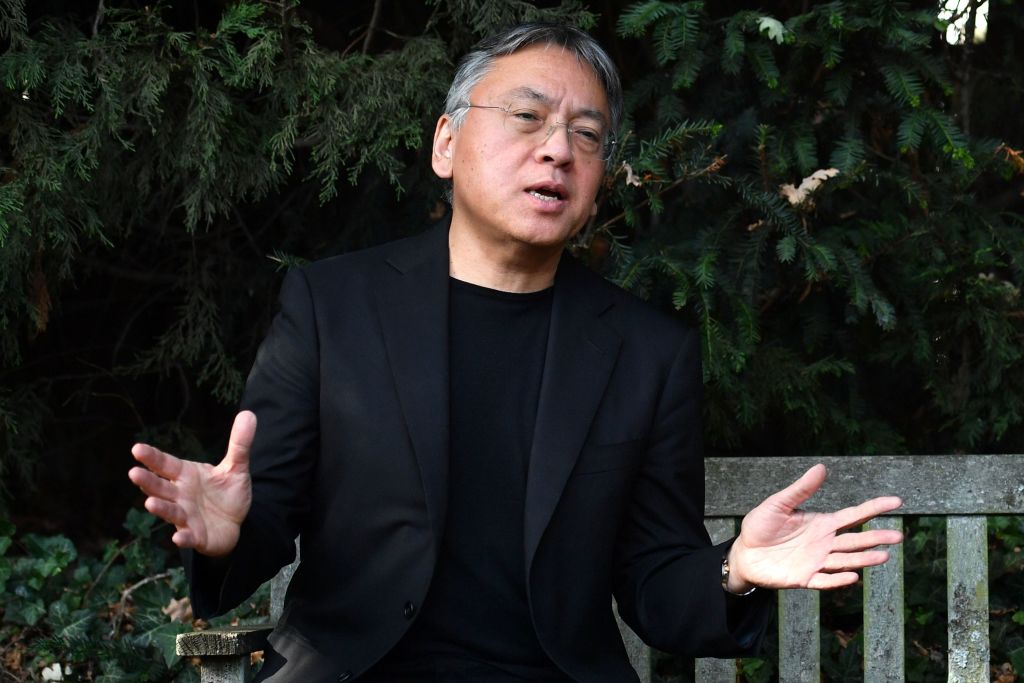When the Kuwaiti authorities banned nearly 1,000 books from the Kuwait International Literature festival including Dostoevsky’s The Brothers Karamazov, the move was rightly met with outrage from the Western literary community. The press was full of talk about the perils of artistic censorship. That was twelve years ago, but this grand-standing was on display again last year during the Abu Dhabi literature festival. Stephen Fry and Noam Chomsky signed a letter to the United Arab Emirates government, castigating them for ‘promoting a platform for freedom of expression, while keeping behind bars Emirati citizens and residents who shared their own views and opinions.’
What would have struck us as dystopian a decade ago now seems not that far removed from the cultural climate we find ourselves in today. Step forward Nobel prize-winning novelist Kazuo Ishiguro, who has spoken out about the ‘climate of fear’ that is causing young writers to self-censor. As online culture tightens its grip on the stories that a writer is allowed to tell, it’s hard not to feel that we are heading in an increasingly hostile direction.
Western censorship may not be coming from overbearing governments. Indeed, if it was, perhaps authors would find it easier to rebel against it. Instead, it is coming from readers and publishers. That the ‘online lynch mob’ described by Ishiguro is emerging from the grass roots is really quite concerning: its seemingly democratic, populist guise means it’s both harder to criticise and harder to spot.
For new writers it’s increasingly unlikely that a book that has the potential to court controversy will make it on to bookshelves in the first place
Established writers like JK Rowling and Margaret Atwood know all too well the online furore that can greet an author who contravenes one of the presiding social orthodoxies of the day. In Rowling’s case, it was her outspoken remarks about the trans debate; in Atwood’s, it was her temerity to question the MeToo movement. But more often than not, the international profile of these writers has carried them through.
As Jordan Peterson found when staff at Penguin Random House objected to the news that their employer was to publish his follow up to ’12 rules for life’, a censorious clamour about a high profile author is very good PR. Even Ishiguro, literary genius that he is, has a book to promote.
What’s more concerning for new writers is that it’s increasingly unlikely that a book that has the potential to court controversy will make it on to bookshelves in the first place. It’s now commonplace for publishers to include what’s known as a ‘morals clause’ or ‘conduct clause’ in authors’ contracts so that the deal can be cancelled if an author does or says something that is likely to impact their book sales negatively.
Whilst it’s absolutely right that a publisher should be able to end an arrangement if the actions of an author bring them into disrepute, it’s the loose scope of the phrase that is most concerning: anything that generates a negative reaction on social media could provide grounds for a contract termination – whether it’s a political opinion or a social misstep.
As Jordanian-American author Natasha Tynes discovered, this arrangement can extend to criticising someone online for eating on a train. Tynes’s remarks about a Washington Metro employees’ behaviour may have been judgemental, interfering even, but swathes of social media users went further and said Tynes’ remarks were racist because the staff member she was criticising was black. Her book deal was duly canned.
It isn’t just online utterances that are coming under increasing scrutiny. New writers putting pen to paper know full well that there are certain subjects that are off limits. As Salman Rushdie said recently:
‘If you can only write about a gay character if you’re gay or you can only write about a straight character if you’re straight, very rapidly the form of literature becomes difficult to continue with.’
Indeed, we live in a strange world where limits are being placed on what authors are allowed to imagine. This was exactly the predicament of American author Jeanine Cummins whose novel American Dirt was accused of pedalling racial stereotypes about Mexican immigrants. Never mind that Cummins had stated that the aim of her book was to shine a light on their plight. So visceral was the response of readers that she even had her book tour cancelled due to fears for her safety. It’s one thing to criticise a novel because of the writing, which many of Cummins’ readers did. It’s quite another to suggest that authors who do not share exactly the same racial or sexual profile as their characters cannot tell their stories.
But if we come to see this as the purpose of reading, then literature is truly in trouble. What happened to F.R. Leavis’s grand, if idealistic, vision of reading as a means of developing empathy? Today’s cultural climate has made clear that any author who tries to do this in a way that engages with the issues of the day will find their manuscript on the slush pile.







Comments